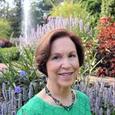Change is a constant in our lives. For the past 300 years ideas about the world of change have come from Isaac Newton's machine metaphor. For the past 150 years ideas of struggle and competition have come from Charles Darwin's theories about evolution.
The new sciences reveal a world filled with millions of species that adapt and thrive. They tell a different story of how life is capable of so much change and resilience. To learn from the behavior of living things offers us great opportunity. To let go of our mechanistic and competitive worldviews requires an enormous shift in perspective. The following three ways of thinking offer a place to begin.
We are connected to each other and all things in the Universe.
Modern science now confirms what mystics through the ages have told us. Everything in the universe is connected with everything else. We are not only linked to each other. We are also connected to our home, the Earth. Consider a whole and its parts. The universe is an integrated whole. Each one of us has a part to play in relationship to this whole. A sense of oneness is at the heart of being fully human and spiritually aware.
The Earth community is a sacred community shared by all living things. Its members belong to the whole universe. Nothing separates us. We need oxygen to survive, but don't make it. Photosynthesis, the process that makes oxygen, requires trees, plants and sunlight. For photosynthesis to make oxygen, earth and sun need the proper relationship with planets and moons in our solar system. Otherwise all living things freeze or melt down.
The more we know the more responsibility we have to care for all life. We must change from humans exploiting earth's resources to participating members of a life community. True progress must benefit all members.
We co-create our world through our chosen relationships.
We are not isolated beings. We live in a participative universe. We must honor our own uniqueness before we can respect the bond we share with others. Relationships are complex. But differences stimulate new ways of being. When we open our hearts and broaden our minds, we can build diverse relationships. They expand us as human beings.
A highly stable ecosystem relies on interdependent relationships. Members must meet their individual needs and preserve their own existence. They also must have a balanced relationship within the larger community. Both natural and human worlds require a balance between independence and interdependence. Our challenge is clear. We must find ways to balance concern for our own interests with concern for our global family and Planet Earth.
We desire change only when we see its meaning for us.
The human need for meaning underlies our desire for change. We pay attention and make choices based on what is called self-reference. Who are we? What do we aspire to be? As human beings, our capacity for self-reflection differentiates us from other species. But are we moving too fast to use our gift for reflection? Do we notice lack of meaning only when faced with a crisis? How can we hear wisdom from within if we are never still enough to listen?
The story of bacteria reveals how living things adapt to preserve themselves. For 2 billion years bacteria ruled the world. They competed with each other and caused crises of global hunger and pollution. To save themselves from extinction, ancient bacteria moved away from selfish competition to dynamic cooperation. Today their descendants continue to thrive. The shift from competition to cooperation may be the key to our survival.
One final shift in perspective is essential for us to understand. Life is a process of becoming. Expect surprises. Be curious about what comes next. Letting go of resistance and working with change is a step forward. It allows us a feeling of relief. It opens us to discover new ways of being. Each one of us has a great capacity for change. By participating in the dance of life, we become more resilient, adapt and thrive.
Mary Beth Ford, Ed. D., is the author of Wisdom from the Gardens: Life Lessons and creator of Garden Wisdom Teleseminars. She specializes in the area of life balance, which she describes as balance between outer world and inner Self. In her work Mary Beth shares her five powerful garden lessons for living with balance and joy. Using nature images she gives us a new vision of ourselves and our world. Her desire is to help busy people live with Spirit in the world. To learn more, visit Mary Beth's website at http://www.wisdomfromthegardens.com and listen to her inspiring reflection on world and Spirit.

Post new comment
Please Register or Login to post new comment.